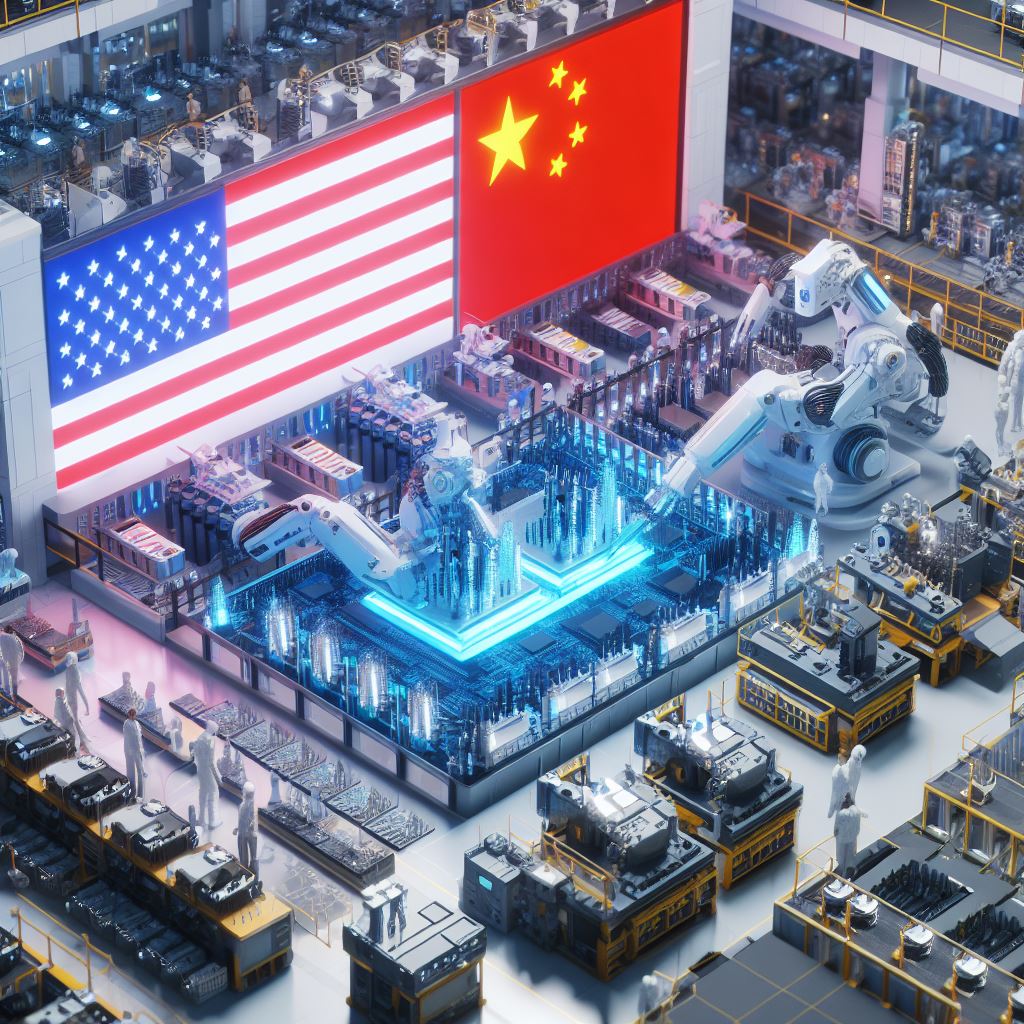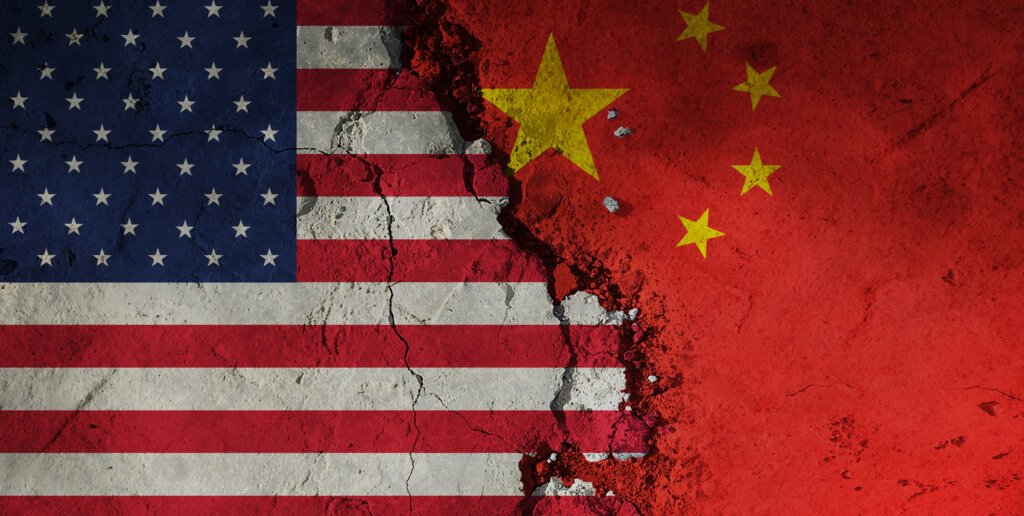- Nvidia to resume sales of AI chips to China as US ties semiconductor exports to rare earth materials access in broader trade negotiations.
- AMD also cleared to export MI308 processors following Commerce Department assurances, marking a significant shift in tech export policy
The dramatic reversal of Nvidia’s AI chip export restrictions against China signals a fundamental shift in US technology trade policy, revealing how both superpowers have weaponized their technological advantages in an escalating economic standoff.
While the US has restricted China’s access to advanced semiconductors to limit AI capabilities, China has retaliated by restricting the supply of rare earth materials that American manufacturers desperately need for everything from fighter jets to smartphones.
Now, after months of economic brinkmanship, both nations are stepping back from the precipice—trading AI chips for access to rare earths in a deal that underscores how deeply intertwined their technological futures remain, despite growing geopolitical tensions.
High-stakes reversal after months of restrictions
Nvidia, the world’s most valuable company with a $4 trillion valuation, announced Monday that it has received government assurances to resume sales of its H20 artificial intelligence chip to Chinese customers after a four-month embargo.
The move follows a pivotal meeting between Nvidia CEO Jensen Huang and President Donald Trump at the White House, where the chipmaker’s leadership argued that continued restrictions could undermine America’s global AI dominance.
“We were recently informed by the Department of Commerce that license applications to export MI308 products to China will be moving forward for review,” AMD stated Tuesday, confirming it would also resume AI chip shipments once licenses are approved.
The policy reversal represents one of the most significant developments in US-China technology relations since export controls were first implemented, affecting billions of dollars in trade and potentially reshaping the global AI competitive landscape.
Rare earth materials drive strategic calculations
Commerce Secretary Howard Lutnick revealed that the resumption of semiconductor exports is directly tied to broader negotiations over rare earth materials. “We put that in the trade deal with the magnets,” Lutnick told Reuters, referencing an agreement to restart rare earth shipments to US manufacturers.
China’s dominance over rare earth production—controlling approximately 85% of global processing capacity for the 17 metals essential to smartphones, military equipment, and electric vehicles—has provided Beijing with significant leverage in trade negotiations.
The country had halted rare earth exports in March following escalating trade tensions with the Trump administration. Treasury Secretary Scott Bessent characterized the Nvidia export controls as a “negotiating chip” in larger US-China trade discussions, according to Bloomberg, highlighting how semiconductor policy has become intertwined with broader economic and strategic considerations.
Massive financial stakes for industry leaders
The export restrictions have imposed substantial costs on American technology companies. Nvidia estimated a US$2.5 billion shortfall in H2 sales during the first quarter of 2025, with projected losses of US$8 billion in the second quarter. Overall, the company calculated that export curbs would reduce annual revenue by US$15 billion.
For Nvidia, China represents a critical market generating US$17 billion in revenue during fiscal 2024—approximately 13% of total sales. The company’s stock surged 4% following the resumption announcement, while AMD shares gained 7%, reflecting investor relief over restored market access.
“The Chinese market is massive, dynamic, and highly innovative, and it’s also home to many AI researchers,” Huang told Chinese state broadcaster CCTV Tuesday, emphasizing the strategic importance of Chinese partnerships for Nvidia’s continued growth.
Congressional opposition highlights bipartisan concerns
The decision has encountered sharp criticism from US legislators across party lines, who express concern about potential national security implications. Democratic Representative Raja Krishnamoorthi described the move as “dangerously inconsistent” with previous administration positions on China export controls.
Republican John Moolenaar, chair of the House Select Committee on China, demanded clarification from the Commerce Department. “The H20 is a powerful chip that, according to our bipartisan investigation, played a significant role in the rise of PRC AI companies like DeepSeek,” Moolenaar stated, referencing a Chinese startup claiming to build AI models at significantly lower costs than US competitors like OpenAI.
The congressional pushback underscores ongoing tensions between economic interests and national security considerations that have characterized US technology policy toward China.
Chinese companies scramble for chip access
News of the resumption has triggered an immediate scramble among Chinese technology companies to secure H20 chip allocations, according to Reuters sources familiar with the procurement process. Internet giants ByteDance and Tencent are reportedly submitting applications through an approved vendor list system managed by Nvidia.
While H20 chips lack the full computing power of unrestricted Nvidia processors due to previous export limitations, they remain compatible with Nvidia’s CUDA software platform—considered the industry standard for AI development globally. This compatibility provides Chinese developers with access to established development tools and frameworks essential for competitive AI research.
The volume of chips ultimately approved for export will determine the strategic significance of this policy shift. AI expert Divyansh Kaushik from Beacon Global Strategies warned that substantial access could dramatically alter competitive dynamics. “If China can get a million H20 chips, it could significantly narrow, if not overtake, the US lead in AI,” he said.
Huang has consistently argued that restricting American technology access to Chinese developers ultimately undermines US leadership by encouraging domestic alternatives. Chinese companies like Huawei have accelerated the development of indigenous chip designs, potentially reducing long-term dependence on American technology.
“For America to be the world leader, just like we want the world to be built on the American dollar, using the American dollar as a global standard, we want the American tech stack to be the global standard,” Huang told CNN’s Fareed Zakaria, articulating Nvidia’s strategic vision for maintaining technological influence.
Regional impact and future outlook
For Asian technology companies and governments, the resumption of Nvidia China AI chip sales represents both opportunity and uncertainty. Regional partners have watched closely as US-China technology tensions have disrupted global supply chains and forced difficult choices between competing technological ecosystems.
The rapid reversal of export restrictions demonstrates how quickly geopolitical and economic pressures can reshape technology trade policy, creating ongoing uncertainty for companies planning long-term AI investments and partnerships across the region.
As Huang prepares for a media briefing in Beijing Wednesday during his second visit to China this year, the technology industry continues adapting to an increasingly complex landscape where AI advancement, national security concerns, and economic leverage intersect in unprecedented ways.







